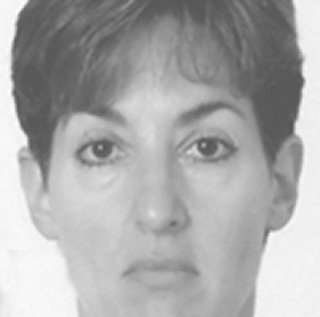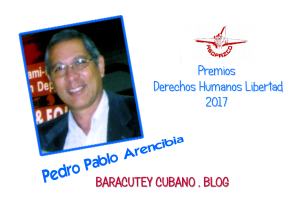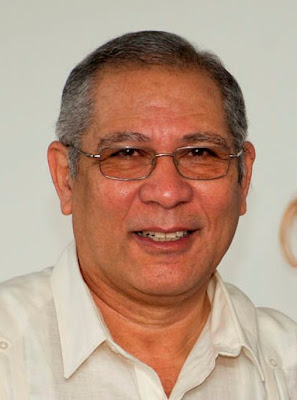REVELACIONES SOBRE EL ESPIONAJE CUBANO
Diario Las Americas
Revelaciones sobre el espionaje cubano
Por Ernesto F. Betancourt
Publicado el 09-26-2006
Acaba de salir un libro que recomiendo a todos los cubanos. Se titula ENEMIES: How America´s foes steal secrets and how we let it happen por Bill Gertz. Este reportero cubre el Pentágono para el Washington Times. El libro provee excelente documentación sobre diversos casos de espionaje en los que ha habido fallos en la contrainteligencia de los EEUU. En el capítulo 8, revela el contenido del informe que hizo la Oficina Ejecutiva de Contrainteligencia Nacional sobre el daño causado a la seguridad de los EEUU por la espía confesa Ana Belén Montes. También habla del caso de Alberto Coll, quien fuera subsecretario de Defensa en época de Bush padre. Un alto funcionario del FBI, sin dar detalles, dijo hay más en este caso.
Ana Montes trabajó para la inteligencia cubana por dieciséis años.
 Fue reclutada cuando todavía estaba estudiando. La Dirección General de Inteligencia (DGI) la encaminó a una carrera en la Defense Intelligence Agency (DIA), o sea la agencia de inteligencia del Pentágono, donde llegó a ser la analista principal sobre Cuba. Tuvo más de cien reuniones con agentes de la (DGI). De acuerdo con Gertz, Ana Montes puede haber causado más daño a la seguridad nacional de los EEUU que los infames casos de Aldrich Ames (CIA) y Robert Hanssen (FBI). La razón es sencilla. Ella tenía acceso a secretos de inteligencia mucho más vitales que cualquiera de esos dos agentes dobles.
Fue reclutada cuando todavía estaba estudiando. La Dirección General de Inteligencia (DGI) la encaminó a una carrera en la Defense Intelligence Agency (DIA), o sea la agencia de inteligencia del Pentágono, donde llegó a ser la analista principal sobre Cuba. Tuvo más de cien reuniones con agentes de la (DGI). De acuerdo con Gertz, Ana Montes puede haber causado más daño a la seguridad nacional de los EEUU que los infames casos de Aldrich Ames (CIA) y Robert Hanssen (FBI). La razón es sencilla. Ella tenía acceso a secretos de inteligencia mucho más vitales que cualquiera de esos dos agentes dobles.En varias ocasiones, Ana Montes rechazó ascensos para seguir como analista de inteligencia, lo cual le daba acceso no tan sólo a inteligencia sobre Cuba. Ella tenía acceso a todas las bases de datos computarizados de inteligencia de otras agencias en un sistema llamado (CIRAS). Informó a los cubanos de agentes que viajaban a Cuba, así como los nombres de cuatro cubanos que habían aceptado colaborar con la inteligencia americana. En 1999, después de una visita a la base de la National Security Agency (NSA) en San Antonio, Texas, pasó a la inteligencia cubana la información que obtuvo sobre el monitoreo electrónico de Cuba y América Latina. Cuba pasaba la información provista por la Montes a Rusia, China y otros países. Y, en algunos casos, la cobraba.
La Montes no se limitó a pasar inteligencia a los cubanos, sino que también influenció con su desinformación la política de EEUU hacia Cuba. Esto pasó bajo la administración Clinton cuando ella restó importancia al desarrollo de agentes biológicos en Cuba y llegó a la sorprendente conclusión de que Cuba no representaba ninguna amenaza militar apreciable para los EEUU. Esto pareció demasiado a William Cohen, el republicano Secretario de Defensa de Clinton, llevándolo a poner palabras de cautela en la introducción del informe coordinado por la Montes.
Al momento de ser descubierto, Alberto Coll presidía el Departamento de Investigaciones Estratégicas en el Colegio de Guerra Naval en Newport, Rhode Island. La contrainteligencia evadió revelar detalles de su caso. Coll confesó haber mentido al decir que viajó a Cuba para visitar a una tía enferma. En realidad, fue a visitar a una amante. Gertz informa que la DGI cubana usó a la amante para reclutar a Coll.
Coll hubiera podido hacer aún más daño a EEUU que la Montes. En 2001 fue presentado a Donald Rumsfeld en una terna de tres para ocupar el tercer cargo en el Pentágono. Afortunadamente, no lo escogió. Denuncié el encubrimiento de Coll en El Nuevo Herald. Envalentonado por el encubrimiento, escribió un feroz ataque contra mí. El Director del Herald se negó a publicar mi respuesta. ¿Por qué? Nunca me explicó.
****************
Tomado de
http://www.nwc.navy.mil/cnws/Alberto%20Coll.htm
DR. ALBERTO R. COLL
Chairman, Strategic Research Department
(401) 841-7530
colla@nwc.navy.mil
 Alberto R. Coll is Chairman of the Strategic Research Department at the US Naval War College in Newport, Rhode Island.
Alberto R. Coll is Chairman of the Strategic Research Department at the US Naval War College in Newport, Rhode Island.Dr. Coll was born in Havana, Cuba. He came to the United States in 1968 without his family and no knowledge of English. In 1977, he received a B.A, with Honors in History from Princeton University, and later earned a J.D. and a Ph.D. in government and foreign affairs from the University of Virginia, with "highest distinction" in international politics and theory.
In 1982 he joined the Government Department at Georgetown University, where he taught international relations, law and organization. That same year he accepted an appointment to the Naval War College as a Secretary of the Navy Senior Research Fellow, and subsequently served as a Professor of Strategy. In 1989 he occupied the College's oldest chair, the Charles H. Stockton Chair. After serving in the first Bush Administration from 1990 to 1993, Dr. Coll returned to the Naval War College, where he has served since then.
Dr. Coll is the author of two books, The Wisdom of Statecraft and The Western Heritage and American Values. His articles have appeared in the Wall Street Journal, Foreign Policy, and numerous scholarly journals. He lectures widely on strategy, U.S. relations with Cuba and Latin America, and American foreign policy and grand strategy.
********************
Tomado de
http://www.slate.com/id/2122364/
The assassination of Alberto Coll.
By A.L. Bardach
Posted Monday, July 11, 2005, at 11:59 AM ET
While combatants on both sides of the Cuba war have been known to literally kill their opponents in decades past, these days the preferred method is political assassination. The recent confirmation hearings of John Bolton identified several such targets, including Fulton Armstrong, the CIA's national intelligence officer for Latin America, and State Department weapons analyst Christian Westermann. Both found themselves in the cross hairs of Bolton and his colleague Otto Reich when they challenged the claim that Cuba was a threat to the United States. Only the intervention of Colin Powell and CIA Deputy Director John McLaughlin saved Armstrong and Westermann from losing their jobs.
The case of Alberto Coll has received far less attention. Coll is a former deputy assistant secretary of defense during the George H.W. Bush administration, a military scholar, and a dean at the U.S. Naval War College whose life has been nearly destroyed by a slander campaign accusing him of espionage and an absurd criminal prosecution for violating U.S. travel rules to Cuba.
For many years, Coll defined himself as a conservative Republican and anti-Castro hard-liner. When he was 6 years old, he watched as his father was taken from home to serve nine years in a Cuban prison for his opposition to Castro. When he was 12, he fled Cuba in a propeller-engine plane. He would not see his family again for 10 years. Although he did not know any English upon his arrival, he won a full scholarship to Princeton and earned a law degree at University of Virginia, going on to teach at Georgetown University and become a senior Pentagon official.
Handsome and articulate, Coll was a rising star in the defense establishment. In 1987, the late exile leader Jorge Mas Canosa asked him to serve as executive director of the hard-line Cuban American National Foundation in Washington.
Then Coll committed the unforgivable by coming to believe in the late '90s that the U.S. embargo of Cuba was a doomed policy. Once he made those views public, marginalizing Coll was not enough; he had to be destroyed.
The opportunity came in January 2004, six months after his 18-year-old daughter, Celia, was killed in a car accident, which by all accounts left Coll devastated. Around the same time Coll's father became terminally ill. One colleague at the State Department described him as "catatonic"; another recalled Coll saying "the color has drained from my life."
Perhaps seeking consolation, Coll decided to visit Cuba, which he was legally allowed to do for either research or to visit relatives. He noted on his visa that he would be visiting an aunt, which he did. But he also had a romantic liaison with a childhood girlfriend and did not note the rendezvous on his visa. It is the kind of semi-lie of omission committed routinely by thousands of Cuban exiles since the Bush administration instituted onerous restrictions on travel to the island last year.
The liaison was discovered, Coll's friends believe, through secret wiretaps of him by the Justice Department performed at the behest of influential Cuban hard-liners determined to humiliate, terrify, and bankrupt him. Unbeknown to most Americans, Cuba-related investigations are allowable under the Patriot Act because the Bush administration deems Cuba to be a terrorist state. If true, this would mean that the FBI might have found it especially easy to put Coll under surveillance. Calls to the Justice Department and Dan Fisk, deputy assistant secretary of state for the Western Hemisphere, seeking a response to whether the Patriot Act was invoked in the Coll case, were not returned. The prosecuting attorney, Lee Vilker of the U.S Attorney's Office in Rhode Island, where Coll lives, did point out that surveillance of Coll would have been "theoretically" possible through the Foreign Intelligence Surveillance Act of 1977, while refusing to confirm or deny whether it was used.
What is known for certain, however, is that throughout 2004, FBI agents interviewed friends and associates of Coll and appeared at a travel agency in Cambridge, Mass., with a subpoena for all of Coll's travel records. With legal bills of $100,000 and overwhelmed at the thought of having to endure a protracted trial, Coll pleaded guilty to making a false statement on a federal form. Nevertheless, Coll still faced five years in prison and a $250,000 fine.
In the hope that Coll would receive the maximum penalties, Coll's enemies initiated a slander campaign in the Miami media a week prior to his sentencing. On May 20, Carlos Saladrigas, an exile leader from a distinguished Cuban political family, received a call informing him that Albert Coll had just been "arrested for being a spy for Cuba." Saladrigas soon learned that many exile leaders and reporters received the same call. Although the story was entirely bogus, multiple versions of it soon showed up in the Miami media. TV America, a popular Spanish-language cable channel, ran three nights of programs devoted to Coll's story that suggested he was a spy. The vilification continued into the pages of El Nuevo Herald—with one "congressional source" opining that "this is something more than a trip to Cuba," then comparing Coll to the case of Ana Belen Montes, the Defense Intelligence Agency official who pleaded guilty to espionage in 2002.
Jaime Suchlicki, the director of the Cuban Institute at the University of Miami, was quick to ratify the congressman's suspicions, adding that he would "not rule out that Coll was collaborating with the Cuban government." Suchlicki's views are rarely at odds with Miami Reps. Lincoln Diaz-Balart and Ileana Ros Lehtinen, who have secured millions of dollars of aid money for his institute, which, in turn, publishes papers that endorse their policy of isolating Cuba.
El Nuevo Herald also published a commentary by Ernesto Betancourt, a former director of Radio Marti, who reprimanded Coll's deceased daughter for her plans to spend a year studying abroad at the University of Havana.
Judge Ronald Lagueux was unimpressed by both the media campaign against Coll and the state's case. On June 7, Lagueux imposed minimum penalties: a $5,000 fine and a one-year probation. From the bench, he cited Coll's "distinguished and stellar career" and stated his hope that Coll "will be able to pursue his career in various ways despite this conviction." Likewise, the Virginia bar refused to revoke Coll's law license, levying the minimum sanction allowed by law: a one-hour suspension.
Coll's enemies had hoped to prosecute him for something far more serious than a travel violation. But unable to find any evidence of espionage, they settled for a smear campaign. As petty as the charge was, the Coll Affair served a more important purpose for them: an object lesson to frighten others. If a high-level former Defense Department official can be brought to his knees, imagine the effect on working-class exiles in Hialeah and Union City, N.J., who slip into Cuba to see their grandmothers more than once every three years—the maximum allowed by Bush's new Cuba policy.
Vilker, the U.S. attorney deputized to handle the case, said "we recognized this was not the crime of the century, and that's why we recommended the lowest possible punishment—something we never do." Although Vilker says the case was handled out of his Providence, R.I., office, he admitted that there was "input" from Washington. He said he was outraged by the leaks and smears against Coll and insists they did not come from his staff.
Because he is now a felon, Coll will lose his security clearance, which also effectively sabotages any future military career, barring a presidential pardon. Still unsatisfied, Coll's foes are campaigning to have the television documentaries on international affairs that he hosts on the History Channel canceled, while pressuring he Naval War College to fire him.
The Cuba War has finally produced its Captain Dreyfus.











0 Comments:
Publicar un comentario
<< Home